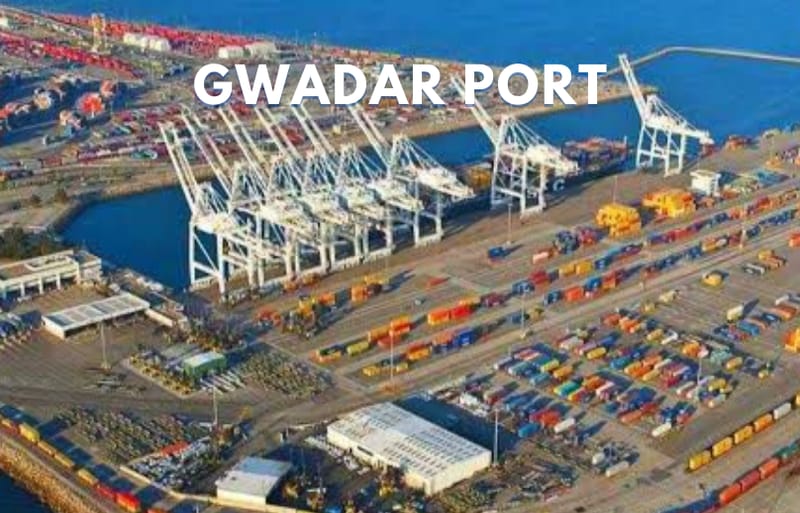Pakistan is putting the cart before the horse
Islamabad, Pakistan:
The Gwadar port became formally operational on November 14, 2016, when Pakistan Prime Minister Muhammad Nawaz Sharif inaugurated it. Then-Pakistan Army Chief General Raheel Sharif flagged off the first convoy. On January 14, 2020, Pakistan made the Gwadar port operational for Afghan transit trade.
Pakistan now aims to restart trade at the China-operated Arabian Sea port of Gwadar and turn the barely operational facility into a “transshipment hub” for landlocked Central Asian states. Still, analysts say logistical challenges and regional instability could undermine its ambitions.
The Central Asian country Turkmenistan is set to start using Pakistan’s Gwadar port soon. This is likely to facilitate Turkmenistan’s privatisation. An agreement is likely to be signed between Pakistan and Turkmenistan soon for this. Gwadar Port has been developed by China with its own documentation.
Trade analysts say the lack of business activity and poor infrastructure means that the goal of making Gwadar a shipping hub is economically unviable and impractical. Prime Minister Shahbaz Sharif’s cabinet on September 12 ordered federal agencies to direct half of the items imported annually (hundreds of thousands of tonnes of fertilizer, sugar, and wheat grain) through Gwadar Port.
Pakistan Commerce Minister Jamal Kamal Khan has recently informed China’s Deputy Commerce Minister Ling Jie about Islamabad’s plan to make Gwadar Port operational in a meeting on the sidelines of the Shanghai Cooperation Organisation (SCO) ministerial conference in Islamabad.
By doing so, Pakistan is trying to “kill three birds with one stone,” said Michael Kugelman, director of the South Asia Institute at the Wilson Center, a Washington think tank. In addition to generating more revenue for its struggling economy, Islamabad is also trying to show Beijing that it is “committed to implementing significant Chinese investment.” A new Middle East country is connected to Pakistan’s Gwadar port. The name of this country is Turkmenistan. Turkmenistan is becoming the first Central Asian state to have access to Gwadar port under the CPEC. An agreement is expected to be signed soon between Pakistan and Turkmenistan in this regard. This port is also the main base of CPEC. The Pakistan government has formed a committee on South and Central Asia under the exit between Gwadar port and Turkmenbashi port. The port is working on various joint ventures including the TAPI pipeline, rail track, and franchise studio to connect the region. Turkmenistan needs to go through Afghanistan or Iran to the United Arab Emirates to Greece to reach Pakistan, where security could be threatened.
According to Pakistan’s Ministry of Maritime Affairs, the ministries of foreign affairs, defense, and interior have already completed the process. Earlier, the Ministry of Maritime Affairs had instructed the cabinet that the arrangement of regional and international cooperation for the construction of both ports is aimed at establishing a transit of goods and investors.
It is my understanding that China has made Pakistan’s Gwadar its “satellite state”. The resources of this city are said to be in Pakistan, but China owns them. Gwadar is being developed as an important point of the ambitious One Belt, One Road, and Maritime Maryland Road Engineering. Efforts are being made to use Gwadar port for import-export of China province.
I also feel that the lack of trading activity and poor infrastructure means that the goal of making Gwadar a shipping hub is economically unviable and impractical and is akin to “putting the cart before the horse”.
Article written by and Editorial credit: State Bureau Chief Himanshu Nauriyal.
